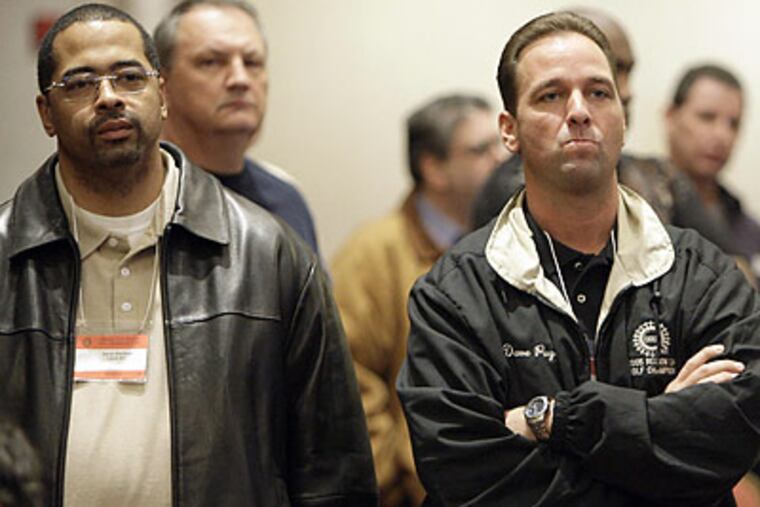Why Detroit woes aren't UAW's fault
Some on Capitol Hill have taken to blaming union contracts for the problems of Detroit's Big Three automakers. Nothing could be further from the truth.

Some on Capitol Hill have taken to blaming union contracts for the problems of Detroit's Big Three automakers. Nothing could be further from the truth.
Years before Detroit even thought about government bridge loans, unionized workers demonstrated a commitment to modernizing domestic automobile manufacturing. That commitment was backed up by dramatic, forward-thinking and often painful changes in work rules, salary structures and benefits packages.
Employees at unionized plants have worked for years to make their companies competitive with foreign companies. Today's union autoworker earns about the same as workers at foreign-owned, nonunion plants in "right-to-work" states.
That's not because nonunion companies are good-hearted. It's because union contracts almost always raise wages for nonunion workers. That's a good thing for society, and it's a reason for American prosperity.
Some people like to point to higher manufacturing costs at union plants. But greater personnel costs at union plants are due mainly to union-negotiated pensions for retired workers. So people who argue that Detroit needs to cut its production costs are saying that retirees should lose benefits they worked to earn.
Throwing the old guys under the bus is not the way we should do things in America. Union retirees worked hard their whole lives, often taking pay and work-rule concessions so they could retire in dignity. We shouldn't support pulling the rug out from under them now.
Unionized employees have been working with management for years to streamline operations. General Motors workers, for instance, made concessions in their last two contracts that the company expects to result in half a billion dollars in annual savings beginning this year.
The union worked with management to cut new workers' salaries in half and change long-standing work rules, which gave management greater flexibility in worker assignments and wage reductions for nonmanufacturing employees, such as janitors. And the GM contract was the template for the latest contracts at Chrysler and Ford.
Most important, the union worked with management to restructure the retiree health-benefits system. The latest United Auto Workers contract transfers responsibility for retiree health benefits from GM to a voluntary employee beneficiary association, which allowed GM to clear a $50 billion liability from its books. The company says that that liability hindered its ability to raise funds and compete against foreign rivals and that the new provision is critical to its future.
This week, UAW made further concessions, allowing the companies to delay retiree health-care payments due next year and immediately canceling its hard-won jobs bank, which protects laid-off workers. The union also plans to reopen contract negotiations with the automakers.
So, for years, while management flew around in a fleet of corporate jets and took millions of dollars in annual salaries and bonuses, every cost-saving measure at the Big Three has come out of labor's hide. Meanwhile, the people now attacking union autoworkers never made similar demands of white-collar employees during the debate over rescuing financial companies.
But the automakers' union employees are still standing up and working to save their companies. Let's work with them, not against them.